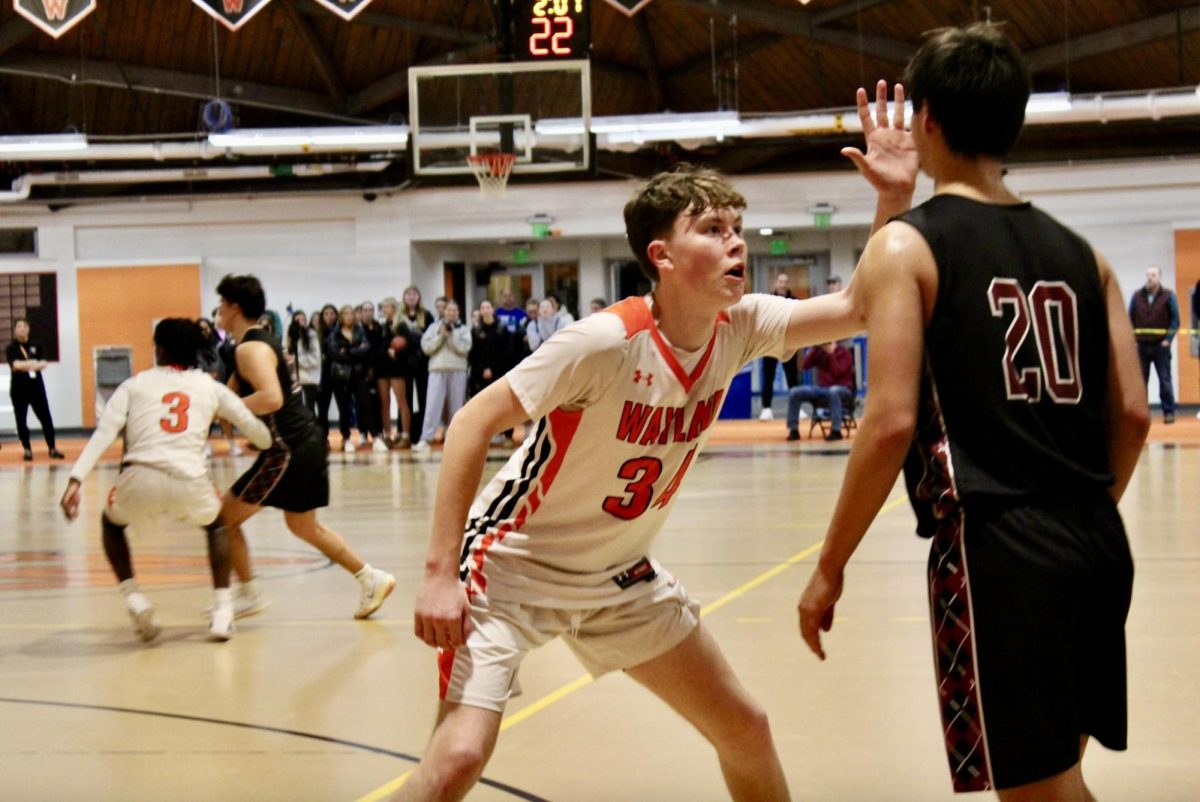
- Influenced by his parents and great-grandparents, sophomore Jonathan Patsenker is familiar with numerous languages, including Russian and Ukrainian.
Some children grow up learning the language their parents spoke when they were young. Others learn from their grandparents, who speak only in their foreign tongue.
For sophomore Jonathan Patsenker, that influence has come from his parents. He learned from them to speak English and Russian fluently.
“It definitely has a lot to do with my family history,” Patsenker said. “Russian I spoke at home, and I still do it today. My parents speak it much better, so I just speak that there.”
Patsenker’s parents also speak many languages. In addition to these languages they can also speak Hebrew.
Even with all of this linguistic knowledge, Patsenker rarely speaks anything other than Russian outside of his house. He does so out of courteousy.
“In public, especially when you start speaking with another person in a different language and no one understands you, it feels really isolating and awkward.”
According to Patsenker, his family has accidentally talked to people in Russian a couple of times.
Patsenker thinks that languages can be taught in a much more effective way than they are at WHS. He credits much of his cultural understanding of Hebrew to a family trip he took to Israel. Before the trip, he knew very little about the country’s customs and language, but afterward he had a better understanding of both.
“The best thing you can do is be around the people who speak it. I think that the classroom approach that they do in schools isn’t actually that good. There’s nothing else you can really do in schools, but I think the way people try to teach people languages is not right. I don’t think language is something you can learn in the classroom.”
Instead, Patsenker recommends building a basic understanding from studying at school, followed by sharpening those skills in an environment with people who speak the language.
If you’re considering learning another language, Patsenker recommends learning Russian. Many people in Eastern Europe tend to know Russian, and the smaller languages such as Ukrainian are far less common.
With this diverse set of linguistic skills, Patsenker feels that he’d be prepared for a job that involves talking to people from Eastern Europe. Even if he decides to take another route, he still believes that language has helped his learning skills develop significantly.
EDITOR’S NOTE: Changes were made to the article based on corrections made by Jonathan.





![Last Wednesday, the Wayland School Committee gathered to discuss a number of topics regarding the health curriculum and Innovation Career Pathway course. Another large topic of conversation was the ways to potentially mitigate distracting cell phone usage. "These [phones] are going to distract your learning and social relationships," Superintendent David Fleishman said. "That's concrete right there."](https://waylandstudentpress.com/wp-content/uploads/2025/06/Screenshot-2025-06-04-at-9.49.31 PM-1200x886.png)

































dude • Jun 13, 2012 at 8:01 AM
what a boss
Une égyptien • Jun 11, 2012 at 7:56 PM
Patsy's the man.
OHaiMark • Jun 11, 2012 at 3:31 AM
Language can be taught in the classroom if done right. In French, when an absolutely no English policy was enforced, I could hold decent conversations and understand everything madame said. We also learn a ton when we read books in French. I'm sure the same goes for other languages.
TL;DR Language immersion is possible within the classroom.